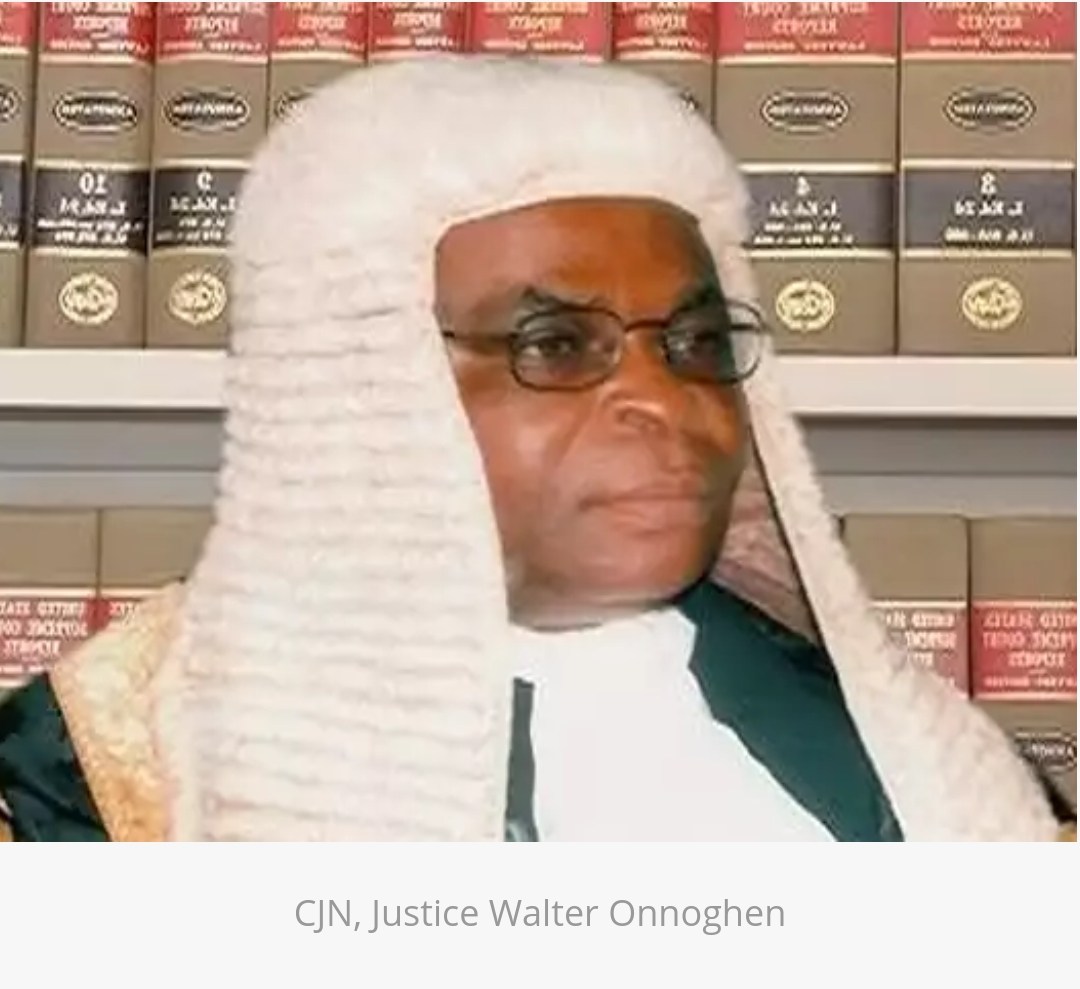
CHIEF JUSTICE OF NIGERIA’S SUSPENSION: THE NEED TO PRESERVE THE SANCTITY OF OUR INSTITUTIONS.
By FOLUSO ADEGALU Esq
The Code of Conduct Tribunal ordered the President of the Federal Republic of Nigeria to suspend the Chief Justice of Nigeria and appoint an Acting Chief Justice in his stead. Within 48 hours of the Tribunal’s order, the President who is infamous for disregarding Court orders, has suspended the Chief Justice and appointed an Acting Chief Justice in his stead.
Section 292 of the Nigerian Constitution states that:
“A judicial officer shall not be removed from his office or appointment before his age of retirement except in the following circumstances –
(a) in the case of –
“Chief Justice of Nigeria, President of the Court of Appeal, Chief Judge of the Federal High Court, Chief Judge of the High Court of the Federal Capital Territory, Abuja, Grand Kadi of the Sharia Court of Appeal of the Federal Capital Territory, Abuja and President, Customary Court of Appeal of the Federal Capital Territory, Abuja, by the President acting on an address supported by two-thirds majority of the Senate.”……………. “Praying that he be so removed for his inability to discharge the functions of his office or appointment (whether arising from infirmity of mind or of body) or for misconduct or contravention of the Code of Conduct;”
From the above stated section of the Constitution, it is evident that the President supposedly acting under the directives of the Code of Conduct Tribunal has assumed and usurped the powers reserved by the Nigerian Constitution for two-thirds majority of the Senate, when he suspended the CJN and swore-in an Acting CJN. Crucially, by the same act, the President has rendered nugatory the order of the Court of Appeal directing the Code of Conduct Tribunal to temporarily stay proceedings on the trial of the CJN pending the determination of the appeal lodged by the CJN before the Court.
What is equally alarming is the manner in which the President had seemingly assumed to himself the power of judicial review over decisions of the Supreme Court, when he remarked in his speech on the suspension of the CJN that “It is no secret that this government is dissatisfied with the alarming rate in which the Supreme Court of Nigeria under the oversight of Justice Walter Onnoghen has serially set free, persons accused of the most dire acts of corruption, often on mere technicalities, and after quite a number of them have been convicted by the trial and appellate courts.”
In the same speech, the President had also assumed the position of a judge, and on his own accord, tried and convicted the CJN when he stated that “Although the allegations in the petition are grievous enough in themselves, the security agencies have since then traced other suspicious transactions running into millions of dollars to the CJN’s personal accounts, all undeclared or improperly declared as required by law. Perhaps more worrisome is the Chief Justice of Nigeria’s own written admission to the charges that he indeed failed to follow the spirit and letter of the law in declaring his assets, citing “mistake’’ and “forgetfulness’’ which are totally unknown to our laws as defences in the circumstances of his case.”
Ironically, the President had admitted in his speech that Nigeria is a “constitutional democracy.” However, the President seems to be in oblivion that separation of power is a cardinal principle of constitutional democracy and this principle is so sacrosanct that it cannot be sacrificed by one arm of government on the altar of anti-corruption war.
It is utterly reckless for the President to arrogate legislative and judicial powers to himself under the guise of self-righteousness and moral uprightness in his anti-corruption war. While the anti-corruption war of the President is arguably a right step in the right direction, it is important for the President to ensure that the battles are fought within the ambit of the law and the institutions of constitutional democracy are not swept away in the anti-corruption war.




Leave a Reply